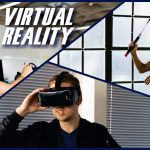The Future of Personal Computing: Trends and Innovations
In an era characterized by rapid technological advancements, the landscape of personal computing continues to evolve, presenting a dynamic array of trends and innovations that promise to redefine the way we interact with our digital world. From the integration of artificial intelligence to the emergence of immersive technologies, the future of personal computing appears poised to revolutionize the way we work, play, and connect. Let’s delve into some of the key trends and innovations that are shaping the future of personal computing.
Artificial Intelligence (AI) Integration:
As AI continues to advance, its integration into personal computing devices is becoming increasingly seamless. AI-powered virtual assistants are anticipated to play a pivotal role in enhancing user experience, offering personalized recommendations, streamlining tasks, and enabling more intuitive interactions between users and their devices. With the ability to learn and adapt to user preferences, AI is set to transform the way individuals interact with technology on a daily basis.
Immersive Technologies: Augmented Reality (AR) and Virtual Reality (VR):
The integration of AR and VR into personal computing devices is poised to redefine the way we perceive and interact with the digital realm. AR is anticipated to enable users to overlay digital information onto the physical world, revolutionizing industries such as education, retail, and entertainment. Meanwhile, VR is set to offer immersive experiences, providing users with opportunities for simulated training, virtual travel, and interactive entertainment that transcends conventional boundaries.
Internet of Things (IoT) Integration:
The proliferation of IoT devices is expected to transform personal computing into a more interconnected and seamless experience. With the integration of IoT, personal devices can communicate with each other, enabling users to control various aspects of their environment remotely. This integration is set to enhance efficiency, convenience, and automation in everyday tasks, ultimately leading to a more interconnected and digitized lifestyle.
Enhanced Personal Devices:
Personal computing devices are undergoing a transformation, becoming more powerful, versatile, and compact. The emergence of foldable smartphones, wearable technology, and advanced laptops equipped with powerful processors and extended battery life is indicative of a future where personal computing devices seamlessly adapt to the diverse needs of users. These enhanced devices are expected to facilitate greater productivity, connectivity, and mobility for users across various contexts.
In conclusion, the future of personal computing is characterized by a convergence of transformative technologies that promise to enhance user experiences, drive efficiency, and create new opportunities for innovation. With the integration of AI, immersive technologies, IoT, and advanced personal devices, the way individuals interact with technology is undergoing a significant shift, paving the way for a more connected, intuitive, and immersive digital future. Embracing these trends and innovations will undoubtedly shape the way we live, work, and engage with the world around us, ushering in a new era of personalized and interconnected computing experiences.



